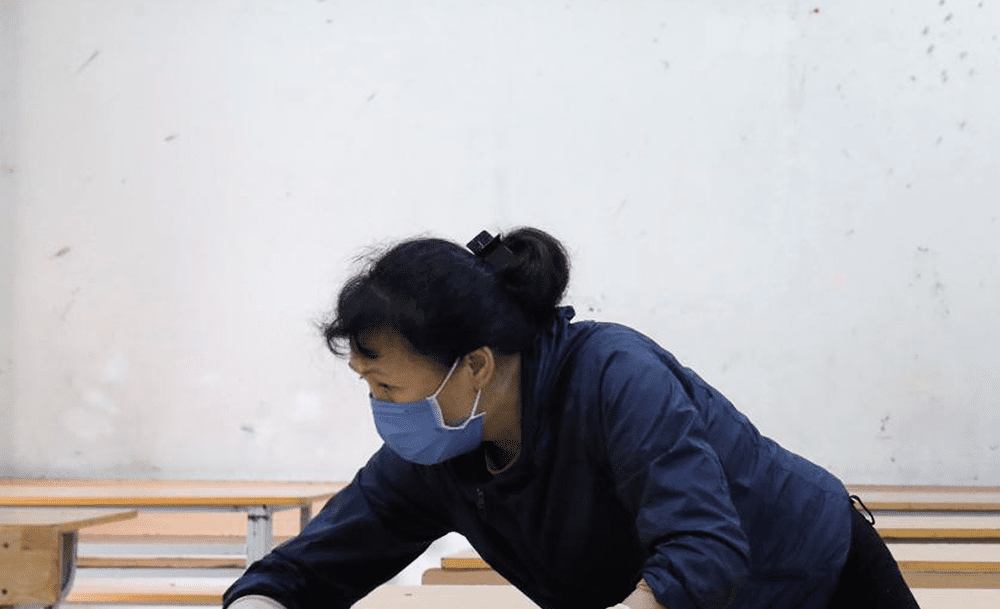
The Coronavirus is Giving Spring Cleaning Fresh Urgency
Spring cleaning has taken on a new urgency this year. Heeding the Covid-19 prevention guidance from the US Centers for Disease Control and Prevention and other health authorities, people are intensely washing, dusting, and disinfecting homes and offices, with the knowledge that lives may literally depend on it.
Though the novel coronavirus is known to spread mostly through respiratory droplets (like mucus or saliva) from person to person, there’s evidence that transmission can also happen by touching infected surfaces. These include door knobs, handles, light switches, remote controls, and even iPhone screens. A new study suggests that the virus thrives on plastic or steel surfaces for days. The CDC recommends a two-step preventive measure: “cleaning of visibly dirty surfaces followed by disinfection.â€
Some are taking extra precautions. Professional cleaning companies are now being deluged with requests for deep cleaning, a process that involves diving into forgotten nooks and crannies to snare dust, dirt and virus-carrying particulate.
Compared to the casual dust-up, a deep clean is an obsessive’s agenda. It means hunting for dust mites behind furniture and cabinets, addressing scum from shower heads and faucets, scrubbing inside ovens, mopping floors under rugs, and sweeping along base boards, ceilings, and window frames. It requires emptying out cupboards to clean the surfaces within. Deep cleaning adds about an extra hour per bedroom and bathroom, according Jan de la Cruz, a customer service agent at the New York-based housekeeping service Maid Marines. Absent of a health crisis, a thorough house cleaning is recommended annually, he explains.
De la Cruz tells Quartz that the pandemic has dramatically impacted their business. More clients are calling for the deep clean service or have increased the regularity of their service. On the other hand, some clients have suspended cleaning schedules for fear of letting anyone in their homes who may have come in contact with someone infected with Covid-19.
RTS34S8J
Deane McFarlane, owner of Green Elite Cleaning Services in Brooklyn, says that the phone has been ringing off the hook all week. Their 28-member cleaning crew, who service both commercial and residential spaces, now have regular briefings about the latest precautionary guidance from the CDC, he says.
More than ever, cleaners are required to use disposable gloves and shoe covers. They’re disinfecting vacuum cleaners between appointments and asked to use hand sanitizers religiously. Housekeepers don’t wear hazmat suits like fumigators wielding electrostatic sprayer, but McFarlane says they’ve ordered the recommended N95 respirators for his crew. “We can’t be overly careful,†he says. “We want to keep everyone healthy, not just because our employees are like family, but also it will impact our ability to service our customers if they start getting sick.”
RTS34LF4
Cleaning is only half the chore. The CDC recommends spraying surfaces with diluted household bleach or cleaning liquids with at least 70% alcohol. The US Environmental Protection Agency has published a list of anti-microbial chemicals proven to be effective at quashing germs that can cause viral respiratory illnesses. For some offices, crews spray the solutions using an electrostatically-charged mist that adheres better to surfaces.
Maid Marines, which typically uses eco-friendly cleaning substances, says they’ve had to relax their policy against using strong chemicals because their customers are demanding them, explains de la Cruz.
Meanwhile, chemical disinfectants are on short supply across the US. Some opportunistic third-party sellers on Amazon have been caught price gouging Lysol, Clorox, and basic supplies.
On a hopeful note, the novel coronavirus is among the easiest viruses to destroy, as Consumer Reports explains. Soap and water, household bleach, isopropyl alcohol (aka rubbing alcohol) or hydrogen peroxide are effective agents in the absence of stronger chemicals.
